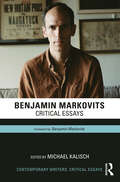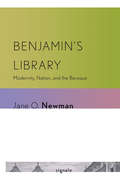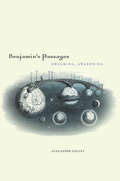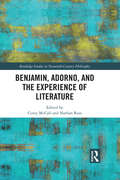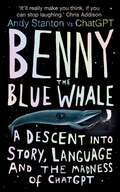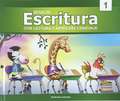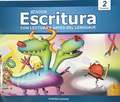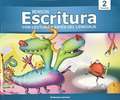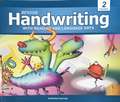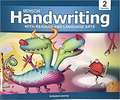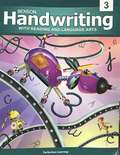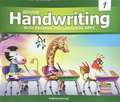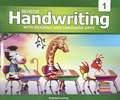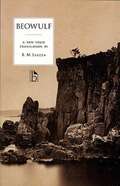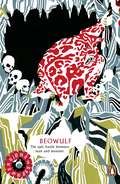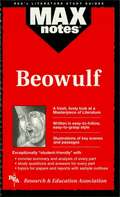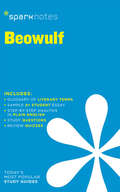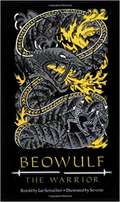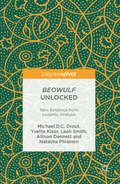- Table View
- List View
Benjamin Markovits: Critical Essays (Contemporary Writers)
by Michael KalischBenjamin Markovits is a leading Anglo-American novelist with a varied and ambitious body of work, ranging from a trilogy of historical fictions on the life of Lord Byron (Imposture, 2007; A Quiet Adjustment, 2008; Childish Loves, 2011) to an award-winning portrayal of a gentrification project in Obama-era Detroit (You Don’t Have to Live Like This, 2015) to intimate studies of contemporary family life (A Weekend in New York, 2018; Christmas in Austin, 2019). Prolific and unpredictable, Markovits is one of the most interesting realist writers working today. Featuring contributions from emerging and established scholars, this collection provides fresh perspectives on Markovits’s place in the contemporary literary field, as well as offering a detailed survey of his work to date. The collection begins with Markovits’s early ‘campus novel’, The Syme Papers (2004), before exploring his celebrated ‘Byron Trilogy’, and the 2005 story cycle, Either Side of Winter. Contributors consider Markovits’s best-known book, You Don’t Have to Live Like This, which won the James Tait Memorial Prize, as well as his more recent fictions focusing on the trials and tribulations of the Essinger family. Taken together, this authoritative collection brings to light the many preoccupations of Markovits’s singular oeuvre—from Byron to basketball, from race relations to real estate. It also includes a frank and wide-ranging interview with the author. The collection will be a first port of call for students and scholars in search of a comprehensive introduction to the work of one of our most exciting contemporary novelists.
Benjamin's Library: Modernity, Nation, and the Baroque (Signale: Modern German Letters, Cultures, and Thought)
by Jane O. NewmanIn Benjamin’s Library, Jane O. Newman offers, for the first time in any language, a reading of Walter Benjamin’s notoriously opaque work, Origin of the German Tragic Drama that systematically attends to its place in discussions of the Baroque in Benjamin’s day. Taking into account the literary and cultural contexts of Benjamin’s work, Newman recovers Benjamin’s relationship to the ideologically loaded readings of the literature and political theory of the seventeenth-century Baroque that abounded in Germany during the political and economic crises of the Weimar years. To date, the significance of the Baroque for Origin of the German Tragic Drama has been glossed over by students of Benjamin, most of whom have neither read it in this context nor engaged with the often incongruous debates about the period that filled both academic and popular texts in the years leading up to and following World War I. Armed with extraordinary historical, bibliographical, philological, and orthographic research, Newman shows the extent to which Benjamin participated in these debates by reconstructing the literal and figurative history of sixteenth- and seventeenth-century books that Benjamin analyzes and the literary, art historical and art theoretical, and political theological discussions of the Baroque with which he was familiar. In so doing, she challenges the exceptionalist, even hagiographic, approaches that have become common in Benjamin studies. The result is a deeply learned book that will infuse much-needed life into the study of one of the most influential thinkers of the twentieth century.
Benjamin's Passages: Dreaming, Awakening
by Alexander GelleyIn transposing the Freudian dream work from the individual subject to the collective, Walter Benjamin projected a “macroscosmic journey” of the individual sleeper to “the dreaming collective, which, through the arcades, communes with its own insides.” Benjamin’s effort to transpose the dream phenomenon to the history of a collective remained fragmentary, though it underlies the principle of retrograde temporality, which, it is argued, is central to his idea of history.The “passages” are not just the Paris arcades: They refer also to Benjamin’s effort to negotiate the labyrinth of his work and thought. Gelley works through many of Benjamin’s later works and examines important critical questions: the interplay of aesthetics and politics, the genre of The Arcades Project, citation, language, messianism, aura, and the motifs of memory, the crowd, and awakening.For Benjamin, memory is not only antiquarian; it functions as a solicitation, a call to a collectivity to come. Gelley reads this call in the motif of awakening, which conveys a qualified but crucial performative intention of Benjamin’s undertaking.
Benjamin, Adorno, and the Experience of Literature (Routledge Studies in Twentieth-Century Philosophy)
by Nathan Ross Corey McCallThis collection features original essays that examine Walter Benjamin’s and Theodor Adorno’s essays and correspondence on literature. Taken together, the essays present the view that these two monumental figures of 20th-century philosophy were not simply philosophers who wrote about literature, but that they developed their philosophies in and through their encounters with literature. Benjamin, Adorno, and the Experience of Literature is divided into three thematic sections. The first section contains essays that directly demonstrate the ways in which literature enriched the thinking of Benjamin and Adorno. It explores themes that are recognized to be central to their thinking—mimesis, the critique of historical progress, and the loss and recovery of experience—through their readings of literary authors such as Baudelaire, Beckett, and Proust. The second section continues the trajectory of the first by bringing together four essays on Benjamin’s and Adorno’s reading of Kafka, whose work helped them develop a distinctive critique of and response to capitalism. The third and final section focuses more intently on the question of what it means to gain authentically critical insight into a literary work. The essays examine Benjamin’s response to specific figures, including Georg Büchner, Robert Walser, and Julien Green, whose work he sees as neglected, undigested, or misunderstood. This book offers a unique examination of two pivotal 20th-century philosophers through the lens of their shared experiences with literature. It will appeal to a wide range of scholars across philosophy, literature, and German studies.
Bennewitz, Goethe, 'Faust'
by David G. JohnFritz Bennewitz (1926-1995) was the director-in-chief of East Germany's Weimar National Theatre. Extraordinary in his capacity for cultural and linguistic adjustment, he directed productions in twelve countries, always adapting shows to make them meaningful to local audiences. Notably, Bennewitz conducted stagings of Goethe's Faust in four different languages over a series of seven productions -- three in pre-unification Weimar, one in the reunited Germany, and one each in New York, Manila, and Mumbai.The first comprehensive account of Bennewitz's remarkable career, Bennewitz, Goethe, Faust is also a pioneering study of intercultural interpretations of Faust. David G. John brings to light previously unknown archival materials -- including annotated playbooks, correspondence, translations, videos, and reception information -- as well as unpublished production photos from the stagings discussed in the book. Bennewitz, Goethe, Faust makes a cogent argument for this director's place alongside the twentieth century's greatest theatre innovators.
Benny the Blue Whale: One Author's Descent into the Madness of AI
by Andy StantonAI is changing the world at frightening speed. A bestselling author decides to find out more… &‘Something profound and utterly brilliant is going on… hilarious.&’ THE TIMES Is ChatGPT the end of creative industries as we know them? An ethical quagmire from which there is no return? A threat to all our jobs, as we keep hearing on the news? Bestselling children&’s author Andy Stanton has made a career out of writing differently – from the unconventional &‘hero&’ of his bestselling Mr Gum series to his penchant for absurdist plots, his children&’s books are anything but formulaic. When a friend introduces him to ChatGPT, the new large language chatbot, Andy is as sceptical as he is curious. Can this jumble of algorithms really mimic the spontaneity of human thought? Could it one day replace human authors like him for good? And are we soon to be ruled over by despotic robot overlords? He decides there&’s only one thing for it – he must test this bot&’s capabilities. Eventually, he settles on a prompt that will push the algorithm to its creative limits: &‘tell me a story about a blue whale with a tiny penis.&’ Chaos ensues. What follows is a surprising and illuminating battle between Andy and ChatGPT that maybe, just maybe, might help us all understand AI a little bit better. Join Andy and his beleaguered AI lackey on a rollicking metafictional journey through the art of storytelling. Presenting his prompts and the AI-generated narrative alongside extensive commentary, Stanton provides a startling paean to the art of a good story and boundless human creativity. Hopeful and hilarious, Benny the Blue Whale provides a joyfully anarchic meditation on AI, literature and why we write. *** A WATERSTONES AND NEW SCIENTIST BEST BOOK OF 2023 &‘There&’s no book like it. Scholarly, childish, fascinating and hilarious – one of our funniest writers dissects what it takes to build a story and what that tells us about being human. It&’ll really make you think, if you can stop laughing.&’ Chris Addison, co-creator of BREEDERS &‘Entertaining and alarmingly relevant, provocative and philosophically satisfying, it&’s ultimately a profoundly human text.&’ OBSERVER &‘A magnificent experiment by a perfect fool – deep and shallow and stupid and clever – the perfect use of AI (Andy Intelligence).&’ Robin Ince, author of THE IMPORTANCE OF BEING INTERESTED &‘Benny the Blue Whale is many things. It&’s a fascinating discourse on the nature of language and storytelling. It&’s a philosophical treatise on the possibilities of artificial intelligence. It&’s a receptacle for obscenely hilarious jokes... A brilliant and beautiful cyborg: part human brain, part computational muscle. It&’s a post-post-modern work of genius.&’ Anthony McGowan, Carnegie Medal-winning author of LARK
Benson Escritura, con lectura y artes del lenguaje, 1 [Slant]
by Susan C. ThiesNIMAC-sourced textbook
Benson Escritura, con lectura y artes del lenguaje, 1 [Vertical]
by Susan C. ThiesNIMAC-sourced textbook
Benson Escritura, con lectura y artes del lenguaje, 2 Transition [Slant]
by Susan C. ThiesNIMAC-sourced textbook
Benson Escritura, con lectura y artes del lenguaje, 2 Transition [Vertical]
by Susan C. ThiesNIMAC-sourced textbook
Benson Escritura, con lectura y artes del lenguaje, K [Vertical]
by Susan C. ThiesNIMAC-sourced textbook
Benson Escritura, con lectura y artes del lenguaje, K [Slant]
by Susan C. ThiesNIMAC-sourced textbook
Benson Handwriting, With Reading and Language Arts, 2 Transition [Slant]
by Perfection Learning CorporationNIMAC-sourced textbook
Benson Handwriting, with Reading and Language Arts, 2 Transition [Vertical]
by Perfection Learning CorporationNIMAC-sourced textbook
Benson Handwriting, with Reading and Language Arts, 3 [Vertical]
by Perfection Learning CorporationNIMAC-sourced textbook
Benson Handwriting, with Reading and Language Arts, K [Slant]
by Perfection Learning CorporationNIMAC-sourced textbook
Benson Handwriting, with Reading and Language Arts, K [Vertical]
by Perfection Learning CorporationNIMAC-sourced textbook
Benson: Handwriting With Reading and Language Arts, 1 [Slant]
by Perfection Learning CorporationNIMAC-sourced textbook
Benson: Handwriting With Reading and Language Arts, 1 [Vertical]
by Perfection Learning CorporationNIMAC-sourced textbook
Beowulf
by R. M. LiuzzaThe classic story of Beowulf, hero and dragon-slayer, appears here in a new translation accompanied by genealogical charts, historical summaries, and a glossary of proper names. These and other documents sketching some of the cultural forces behind the poem's final creation will help readers see Beowulf as an exploration of the politics of kingship and the psychology of heroism, and as an early English meditation on the bridges and chasms between the pagan past and the Christian present. A generous sample of other modern versions of Beowulf sheds light on the process of translating the poem.
Beowulf (Legends from the Ancient North)
by Petra BornerPart of a new series Legends from the Ancient North, Beowulf is one of the classic books that influenced JRR Tolkien's The Hobbit and The Lord of the Rings'So the company of men led a careless life,All was well with them: until One beganTo encompass evil, an enemy from hell.Grendel they called this cruel spirit...'J.R.R. Tolkien spent much of his life studying, translating and teaching the great epic stories of northern Europe, filled with heroes, dragons, trolls, dwarves and magic. He was hugely influential for his advocacy of Beowulf as a great work of literature and, even if he had never written The Hobbit and The Lord of the Rings, would be recognised today as a significant figure in the rediscovery of these extraordinary tales.Legends from the Ancient North brings together from Penguin Classics five of the key works behind Tolkien's fiction.They are startling, brutal, strange pieces of writing, with an elemental power brilliantly preserved in these translations.They plunge the reader into a world of treachery, quests, chivalry, trials of strength.They are the most ancient narratives that exist from northern Europe and bring us as near as we will ever get to the origins of the magical landscape of Middle-earth (Midgard) which Tolkien remade in the 20th century.
Beowulf (MAXNotes Literature Guides)
by Gail RaeREA's MAXnotes for The Beowulf Poet's Beowulf MAXnotes offer a fresh look at masterpieces of literature, presented in a lively and interesting fashion. Written by literary experts who currently teach the subject, MAXnotes will enhance your understanding and enjoyment of the work. MAXnotes are designed to stimulate independent thought about the literary work by raising various issues and thought-provoking ideas and questions. MAXnotes cover the essentials of what one should know about each work, including an overall summary, character lists, an explanation and discussion of the plot, the work's historical context, illustrations to convey the mood of the work, and a biography of the author. Each chapter is individually summarized and analyzed, and has study questions and answers.
Beowulf SparkNotes Literature Guide (SparkNotes Literature Guide Series #18)
by SparkNotesBeowulf SparkNotes Literature Guide Making the reading experience fun! When a paper is due, and dreaded exams loom, here's the lit-crit help students need to succeed! SparkNotes Literature Guides make studying smarter, better, and faster. They provide chapter-by-chapter analysis; explanations of key themes, motifs, and symbols; a review quiz; and essay topics. Lively and accessible, SparkNotes is perfect for late-night studying and paper writing. Includes:An A+ Essay—an actual literary essay written about the Spark-ed book—to show students how a paper should be written.16 pages devoted to writing a literary essay including: a glossary of literary termsStep-by-step tutoring on how to write a literary essayA feature on how not to plagiarize
Beowulf The Warrior (Living History Library)
by Ian Serraillier Mark Severin Lydia ReynoldsBeowulf the Warrior is an outstanding modern version of the oldest epic in the English language. Ian Serraillier has retold in verse the story of the hero Beowulf and his three memorable exploits-first, his rescuing of Hrothgar the Dane from the ravages of monstrous Grendel; next, his victory over Grendel's strange and horrible mother; and finally, in Beowulf's old age, his saving of his own people, the Geats, from the horrors of a dragon at the cost of his life. Beowulf's heroism and noble heart communicate to any modern listener.
Beowulf Unlocked: New Evidence from Lexomic Analysis
by Michael D. C. Drout Yvette Kisor Leah Smith Allison Dennett Natasha PiirainenThe most original and ground-breaking work on Beowulf in several decades, this book uses "lexomic" methods that blend computer-assisted statistical analysis with traditional approaches to reveal new and surprising information about the construction and sources of the greatest surviving Old English poem. Techniques of cluster analysis identify patterns of vocabulary distribution that indicate robust similarities and differences among segments of the poem. The correlation of these patterns with knowledge gained from source-study, philological analysis, and neglected previous scholarship sheds new light on the material of which Beowulf was made and the way it was composed. The implications of this investigation for the dating, structure, and cultural context of Beowulf will overturn the current scholarly consensus and significantly improve our understanding of the poem, its nature, and origins.
